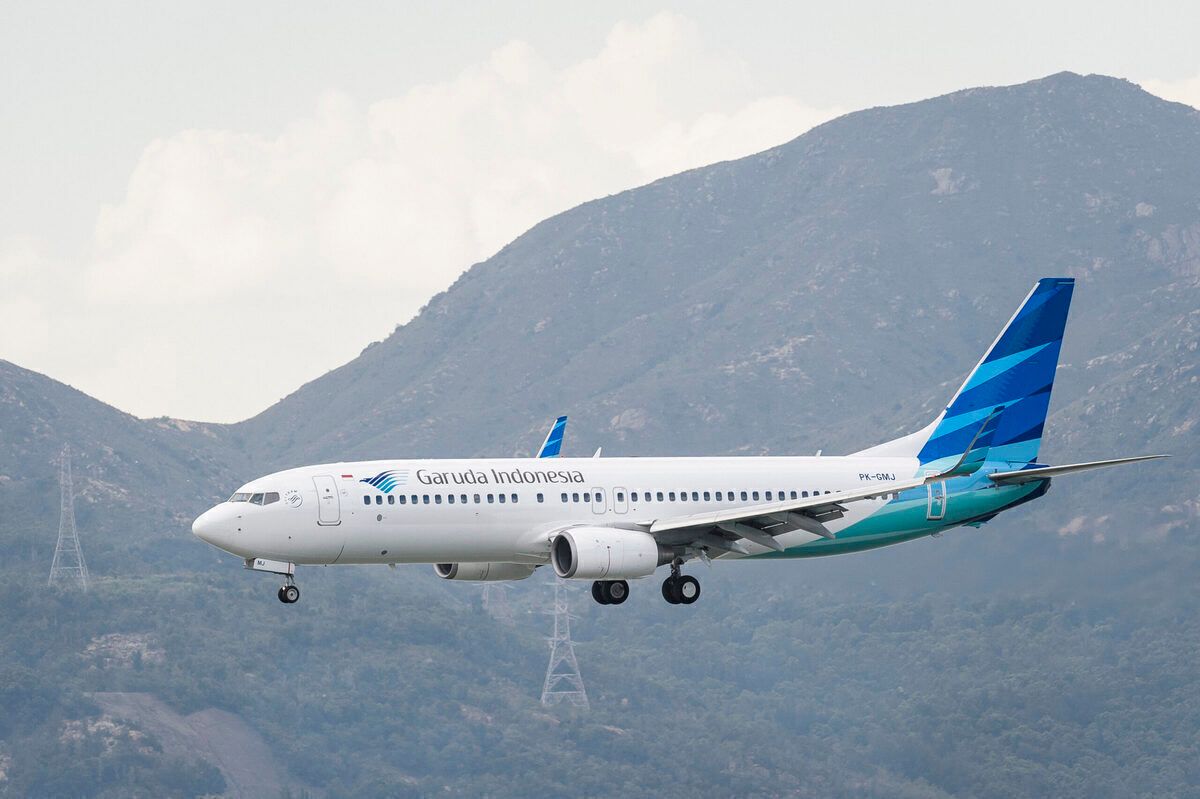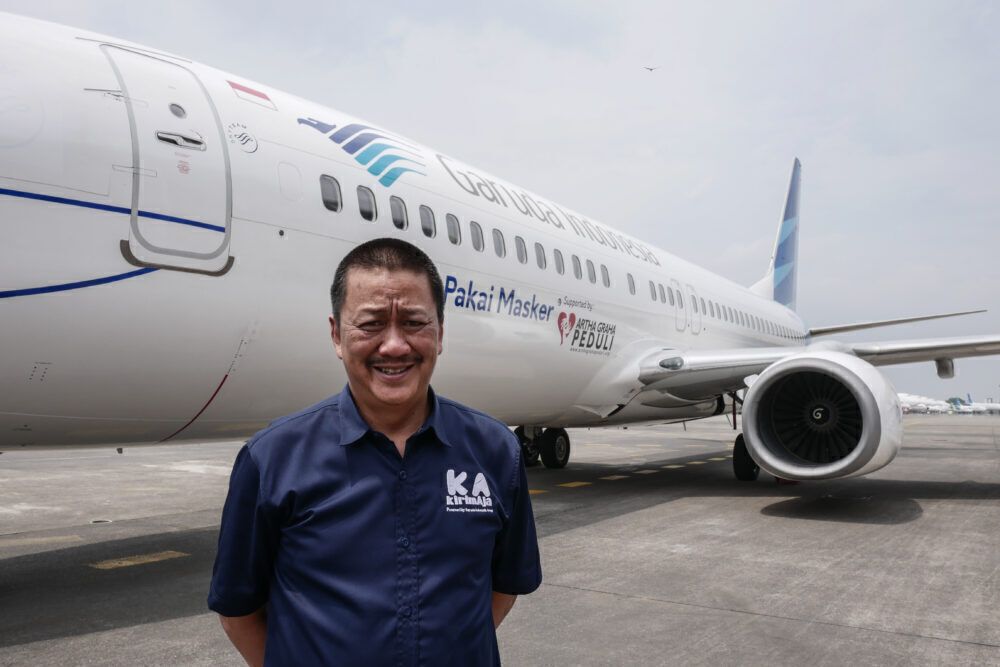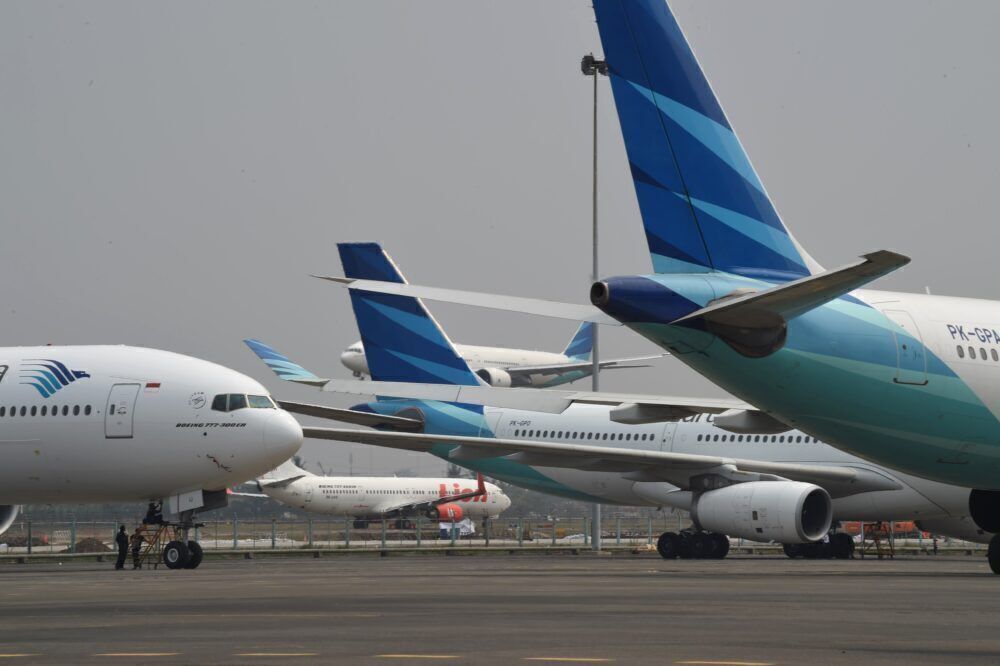Embattled Jakarta-based airline, Garuda Indonesia, is looking at halving its fleet of 142 aircraft as it attempts to navigate the worldwide travel downturn. The airline's passenger numbers were down 73% in 2020. According to Garuda Indonesia's CEO, a comprehensive restructuring of the airline is required to it keep flying.
Garuda Indonesia CEO points to turbulence ahead for the airline
Garuda Indonesia's President and CEO, Irfan Setiaputra, provided an update on the airline's perilous position while speaking to employees last week. Total debt is now US$4.9 billion and growing by $70 million a month. Total equity is -$2.85 billion. Just 29% of Garuda Indonesia's fleet is in the air, and Mr Setiaputra does not see flying conditions in Indonesia improving much this year.
"We have to go through a comprehensive restructuring, a total one,” Irfan Setiaputra told his employees. “Failure to carry out the restructuring program could result in the company being terminated suddenly,” he added.
Structural problems at Garuda Indonesia predate the 2020 travel downturn. But, as with airlines elsewhere, the downturn highlighted many of those problems. With international borders closing and widespread travel restrictions imposed, many of Garuda Indonesia's international services ceased in 2020. The airline is now operating scaled-back schedules to just 10 countries.
Stay informed: Sign up for our daily and weekly aviation news digests.
Problems at home and abroad for Garuda Indonesia
Garuda Indonesia's core business is flying around Indonesia. Indonesia's domestic airline market is one of the busiest in the world. The country is made up of thousands of islands, and airlines are a critical piece of infrastructure. According to Mr Setiaputra, Indonesia's airlines contribute 2.6% to Indonesia's gross national product and employ some 4.2 million people.
But the Indonesian domestic airline market is highly fragmented, and aggressive low-cost upstarts like Lion Air and AirAsia are gaining ground on legacy airlines like Garuda Indonesia.
Garuda's domestic operations are running at about 50% of 2019 levels. With fewer seats available in a price-sensitive market, Garuda Indonesia's revenues are taking a big hit. The airline has not yet published its 2020 financial figures, but with passenger numbers, load factors, available seat kilometers, and revenue passenger kilometers all substantially down, a heavy loss is expected.
The problem for Garuda Indonesia, as with many other airlines, are the high fixed costs. Regardless of passenger numbers, outgoings continue unabated. Employees, aircraft lessors, airports, and fuel are among the many ongoing fixed costs that need to be paid regardless of revenue flows.
Garuda's fleet potentially cut by 50%
It is those costs Irfan Setiaputra is trying to get a handle on. The airline has already offered early retirement options to many of its 14,000 plus employees. With around 90% of Garuda Indonesia's fleet leased, cutting the fleet size is another way to reduce outgoings.
Garuda Indonesia is a client of some 35 aircraft lessors. Mr Setiaputra confirmed that in addition to subdued demand, one contributing factor to Garuda's now slimmed-down operating fleet are planes grounded by lessors because the airline has not made payments on them for several months.
The Garuda Indonesia CEO sees his airline flying no more than 70 aircraft after the restructuring program. That will result in significant cost savings for the airline. But it will also materially alter the airline's future network and operating strategy. Mr Setiaputra did not say which planes he was looking at cutting from the Garuda fleet. The majority of Garuda's leased aircraft are Boeing 737-800s and smaller planes.



